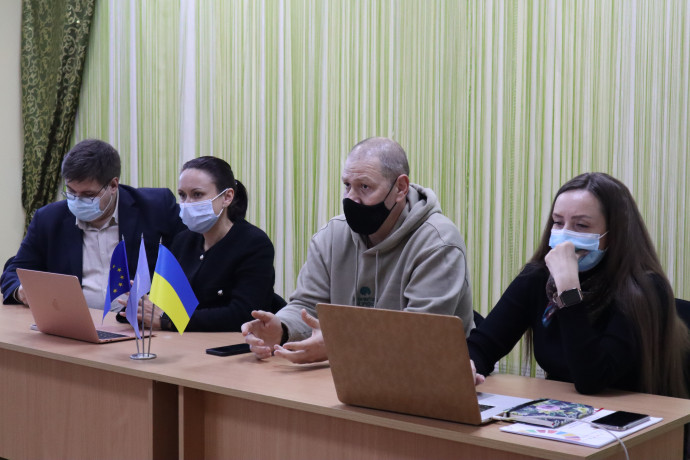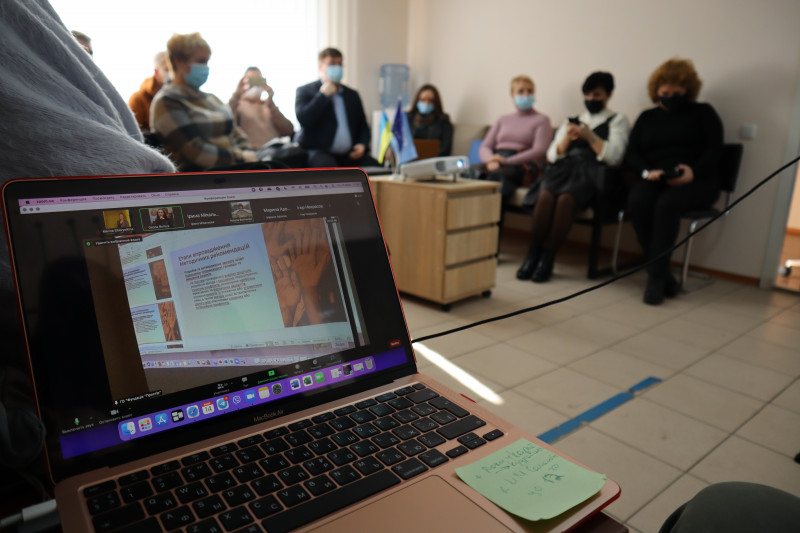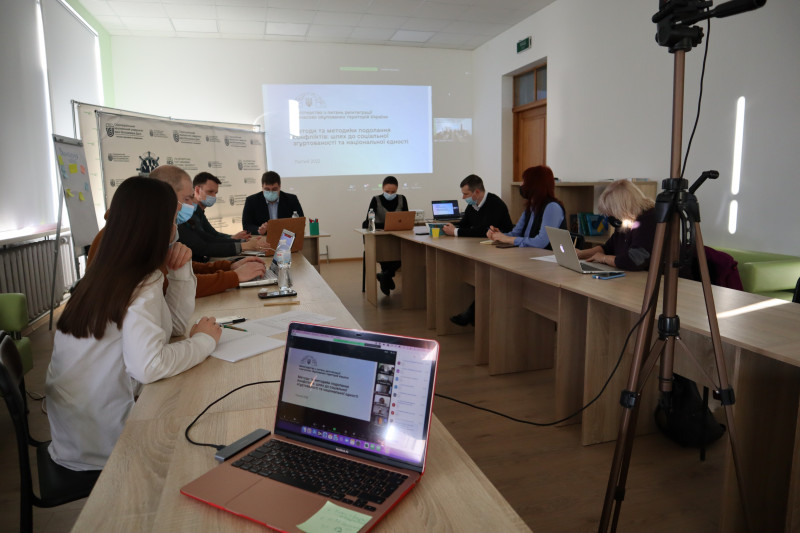Specialists of GISMAECR and the Ministry of regional integration will strengthen social cohesion in the communities of eastern Ukraine

According to the Directorate of peace development of the Ministry of regional integration, work is already underway in accordance with the decree of the president of Ukraine of February 14, 2022 No. 53/2022 «on urgent measures to consolidate Ukrainian society» and the Order of the Cabinet of Ministers of February 14, 2022 No. 147-R «on approval of the action plan for the implementation of the Presidential Decree».
Specialized specialists actively discuss the diverse experience of resolving conflicts in a peaceful way, in particular through the organization of Group dialogue processes.
The locations of such events were communities in eastern Ukraine, in particular, the settlements of Melovoe, Svatovo in Luhansk region and Konstantinovka, Ilinovka and Mangush in Donetsk region. Representatives of the Ministry of regional integration, regional state administrations, local self-government bodies and the public are involved in such meetings. This initiative also involves specialists from the Geographic Information System for monitoring, analyzing, evaluating and resolving conflicts (GISMAOC), who are well versed in conflict transformation tools.
According to the Directorate of peace development of the Ministry of regional integration, such events have taken place before, but now they are especially needed to demonstrate the unity of all strata of the Ukrainian people and all its regions without exception. From the capital to the most remote corner of our country, we are a single family, a Ukrainian state.
It should be noted that on February 14, round tables were held in Novoaydar and Severodonetsk in the Luhansk region, and on February 15 they were held in Melovoye, which is located directly on the border with the Russian Federation.
The organizers of the round tables consider the expected result to be a broad familiarization of local communities with methods of conflict transformation and finding platforms for dialogue at various levels. Special emphasis here is placed on adapting such experience in communities that have been negatively affected by the armed conflict and studying the risks of the territories of Ukraine in them. Presentation of the ministry's current work on adapting methodological recommendations for assessing the risks of conflict in communities affected by armed conflict and studying indicators and their implementation.
In Melovoye, the speakers of the event were:
Stepan Zolotar, director of the World Development Directorate;
Natalia Yemets, head of the conflict and post-conflict settlement Department of the Directorate for peace development;
Anna Borovaya, manager of GISMAOVK;
Galina Bozhenko, expert mentor of the network of monitors and analysts of GISMAOVK;
Denis Shakhbazyan, member of the network of intermediaries and facilitators of GISMAOVK dialogues;
Irina Mikhaleva, Project Coordinator of the NGO «Prostir Foundation», member of the GISMAOVK network;
Andrey Zhidkov, member of the interregional Advisory Council on social unity http://advisers.ndo.lg.ua/.
The event in Melovoye is organized by the NGO «Prostir foundation „within the framework of the United Nations program for the restoration and development of peace with the financial support of the European Union and the Government of the Kingdom of the Netherlands.
It should be noted that on February 14, such round tables were held in Novoaydar and Severodonetsk in the Luhansk region,


United Nations peace reconstruction and development programme it is implemented by four UN agencies: the United Nations Development Programme (UNDP), the United Nations Framework for gender equality and women's empowerment (UN Women), the United Nations Population Fund (UNFPA) and the Food and Agriculture Organization of the United Nations (FAO).
The program is supported by twelve international partners: the European Union (EU), the European Investment Bank (EIB), the US Embassy in Ukraine, as well as the governments of Denmark, Canada, the Netherlands, Germany, Norway, Poland, Switzerland, Sweden and Japan.

